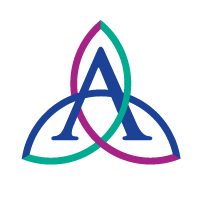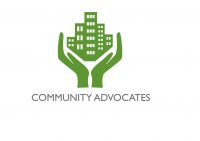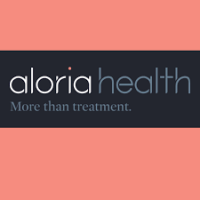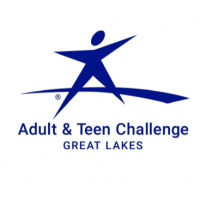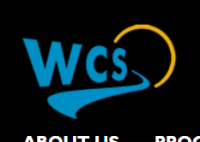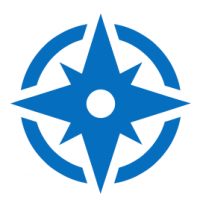
Project RETURN - Changes Support Groups
Drug Rehab Center in Milwaukee, Wisconsin
- Opioid Addiction
- Dual Diagnosis
- Drug Addiction
- Alcoholism
Project RETURN is an addiction and mental health treatment center in Milwaukee, Wisconsin, devoted to helping individuals suffering from substance abuse, alcoholism, and mental health issues by providing counseling services, individual therapy, support for family members and loved ones of those struggling with addiction, as well as gender-specific programs tailored to the unique needs of women striving to overcome their addictions.
About This Wisconsin Facility
Since opening their doors in 2004, Project RETURN has been working to provide high-quality treatment services to individuals suffering from substance abuse, alcoholism, and mental health issues in Milwaukee, Wisconsin. They offer a variety of services including substance use counseling, individual therapy, and group therapy. In addition, they also have a robust support system in place for family members and loved ones. In total, Project RETURN helps nearly 2,000 people annually.
RETURN is one of the few facilities in the state that offers services specifically for women suffering from addiction. They believe that all women deserve the chance to recover from their illnesses and lead healthy, fulfilling lives. As a result, they offer a variety of programs and services that are designed to meet the unique needs of women struggling with addiction.
RETURN is committed to helping both men and women overcome their addictions and reclaim their lives.
Genders
Ages
Modality
Additional
Conditions and Issues Treated
Opioid abuse has become a national epidemic in the last decade. The US has one of the world’s highest rates of opioid use and abuse, as well as opioid-related deaths. Opioids are classified as Schedule II-IV controlled substances in the US due to their high potential for abuse.
Oxycodone, hydrocodone, methadone, and fentanyl are the most common Opioids and are commonly prescribed to treat pain. Tolerance to opioids develops over time, making life difficult, if not impossible, without them. Opioid users often obtain the drugs illegally. They can be drug dealers, friends, or family members who do not have valid prescriptions.
The desire for a more intense high than prescription opioids can quickly lead to heroin use. Heroin users are more prone to illness and death due to the high risk of overdose.
Many opioid addicts who seek treatment believe that the only way to overcome their addiction is through medical detox and long-term drug addiction rehab. To help patients wean off their addiction and reduce the risk of overdose, medication-assisted therapy (MAT) involves prescribing a replacement opioid. Doctors use MAT in conjunction with other anti-craving medications to help patients maintain recovery. Due to the high risk of relapse, MAT is often combined with individual and group counseling and social support programs.
Levels of Care Offered at Project RETURN - Changes Support Groups
This center offers a variety of custom treatment tailored to individual recovery. Currently available are Aftercare Support, Drug Rehab, Outpatient, with additional therapies available as listed below.
An outpatient treatment program is set up to help with alcohol or drug addiction or a co-occurring disorder. The patient must attend the facility for their therapy and other programs but can return home each night.
The frequency of mandatory attendance decreases after much of Project RETURN - Changes Support Groups‘s program is complete.
Outpatient treatment is a recovery approach that allows recovering addicts to live at home while getting rehab for addiction
An outpatient can include day treatments which include attending group sessions one hour per week. A person living in an outpatient environment may be allowed the opportunity to work full time if they choose to and continue studies without interruption from drugs/alcohol.
Outpatient treatment is an option for people who want to maintain their careers and families. Outpatients live at home but attend treatment such as individual counseling, group counseling, or twelve-step meetings during the day.
Aftercare support is vital to the success of someone in drug or alcohol treatment. It involves assisting with entering a sober living home, getting career counseling or educational assistance and even getting the individual lined up with programs like AA and NA. This support helps recovering addicts readjust to normal day-to-day activities and maintain sobriety.
When a person is in drug or alcohol treatment, they have to increase their focus on themselves. They need to learn how to recognize the triggers that cause them to relapse and learn the habits that would benefit them if they were to be sober. This is all part of the growth in recovery, and aftercare is essential to that process.
Therapies & Programs
At Project RETURN - Changes Support Groups , to learn from past mistakes and improve one’s situation, the recovering person meets individually with a therapist. The counselor or therapist will address addiction causes, triggers, mental issues, dual diagnosis, and aftercare plans during this time. This is a very intense and challenging process. Some clients find it easier to open up to someone other than family or friends who understand their struggles with addiction.
Family therapy is a crucial part of drug treatment and getting sober. It is one of the most effective ways to help addicts stay on the path to long-term sobriety. An addict’s family can play a vital part in helping them to avoid relapse. They can spot the warning signs and help them get back on track.
In group therapy, recovering addicts meet with a therapist and other people in recovery. Some groups are closed, meaning only people who share the same addiction or problem can attend. Others are open to anyone who wants to stop using drugs or drinking alcohol. Group therapy sessions typically focus on one topic each week or month so that recovering addicts can discuss issues they face daily.
Drug and alcohol addiction can lead to a breakdown in life skills. Learning certain life skills can help those who are struggling with addiction. Life skills training at Project RETURN - Changes Support Groups in Milwaukee, WI teaches patients skills such as time management, budgeting, and social abilities to improve their quality of life and prevent relapse.
An addict’s life skills are maladaptive, meaning they are counterproductive. An addict may have learned poor time management skills growing up, have a hard time budgeting money, or be socially awkward. An addict’s poor life skills can lead to relapse and the inability to achieve long-term sobriety. Life skills training teaches patients effective coping mechanisms, which can help them live a clean and sober life.
Additional Details
Specifics, location, and helpful extra information.
Milwaukee, Wisconsin 53212 Phone Number(414) 374-8029 Meta DetailsUpdated November 25, 2023
Staff Verified
Patient Reviews
There are no reviews yet. Be the first one to write one.
Milwaukee, Wisconsin Addiction Information
Wisconsin has some of the highest rates in the United States for both adolescent and adult substance abuse. Since 2009, the state has been experiencing the same escalating rates of drug abuse and addiction as the rest of the country. The major concerns are the misuse of prescription painkillers and the escalating number of deaths due to alcohol-related liver disease.
Drug abuse is a growing problem in Milwaukee, Wisconsin, and the statistics are alarming. Treatment admissions for opiate addiction have increased by 400% over the past 10 years. Drug overdoses are now the leading cause of death for people aged 25-44. There are various drug treatment options available for someone looking to get sober in Milwaukee, Wisconsin. Some of the most common treatments include inpatient rehab, outpatient rehab, and therapy.
Treatment in Nearby Cities
- Ladysmith, WI (228.7 mi.)
- Lake Geneva, WI (42.2 mi.)
- Hurley, WI (259.0 mi.)
- Cashton, WI (151.2 mi.)
- Milwaukee, WI (2.2 mi.)
Centers near Project RETURN - Changes Support Groups
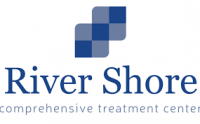

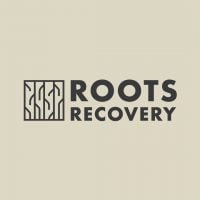
The facility name, logo and brand are the property and registered trademarks of Project RETURN - Changes Support Groups, and are being used for identification and informational purposes only. Use of these names, logos and brands shall not imply endorsement. RehabNow.org is not affiliated with or sponsored by Project RETURN - Changes Support Groups.

